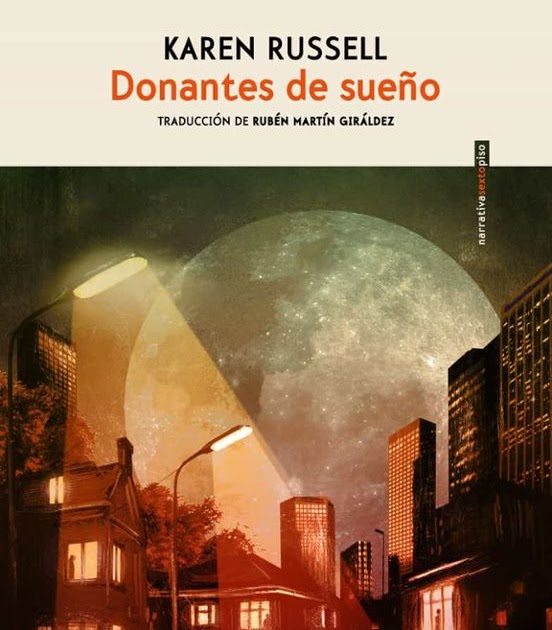
Idioma original: English
Original title: Sleep Donation
Year of publication: 2020 (as paperback; 2014 as e-book)
Translation: Ruben Martin Giraldez
Valuation: between recommended and okay
Here we go with another dystopia, which I know is a genre that you like a lot and that you are not sick of at all… Well, calm down everyone, we are not facing the umpteenth version of The Handmaid’s Tale o Neuromante (not even of The building), but rather before the umpteenth version of… ta-da!, To the fish by Camus… to name an emblematic title of the genre or subgenre, I don’t know about epidemics, pandemics and other contagious infections, including zombie bites.
In this case, the epidemic in question is quite original, because it is a wave of insomnia that is ravaging the United States (where else?) and which causes the death of those affected after not too many days without sleep -less than I would have supposed, although I do not doubt the veracity of the information-; in the face of such a difficult situation and, above all, the difficulty of finding a cure or vaccine, the solution is to give “sleep transfusions” to those affected, which is carried out by a non-profit organization, the Sleep Brigades. They are in charge of recruiting donors, obtaining hours of sleep by means of sophisticated and imaginative technology and distributing them among those who need them. Thus, the protagonist/narrator is Trish, a volunteer who collects sleep donations, especially effective because she is the sister of Dori Edgewater, one of the first and most famous victims of the epidemic. In addition, Trish is the one who managed to get the donation of the miraculous Baby A, whose sleep turns out to be not only universal, compatible with all insomniacs, but even curative in many cases.
The plot of the story revolves around this baby and also around her antithesis, Donor Y, but it focuses above all on Trish’s inner conflict, who is torn between her intention to help and the feelings of guilt caused by both the use of her dead sister’s ghost and the manipulation of an innocent baby and her parents. In this way, the novel presents more reflective and even intimate moments than one might suppose simply by reading its synopsis, which, together with the almost lyrical -or not almost- flashes of the style that Trish/Karen Russell uses to tell us her story, causes the impression left by reading it to be quite different from what one might suppose at first.
On the other hand, it is easy to assume that this novel is nothing more than a mere translation, which barely reaches the level of a metaphor, of the coronavirus pandemic, even more so since it was published in 2020, if Russell was in a hurry to write it – the novel is not too long – he had time… Now, it turns out that Sleep Donors had a life before paper as an e-book, so this theory falls apart: it is not based on the 2020 pandemic. Furthermore, it could actually be an allegory of any kind of epidemic, even that of fentanyl, the digital universe or far-right populism. Or even – it would be a far-fetched interpretation, but you won’t tell me it isn’t more stimulating – it would be a vampire story, but seen from the side of the bloodsuckers… – dreamsuckers, here – why not? Because all these speculations are a bit of a non-starter: the idea of an epidemic of insomnia, of the transfer of dreams and nightmares from donors to patients, the speculation about the whole subculture that is created around this lethal lack of sleep is sufficiently powerful and fascinating to need to mean something else. And it is just as well that it should.
Source: https://unlibroaldia.blogspot.com/2024/09/karen-russell-donantes-de-sueno.html


